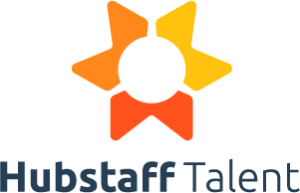The list of benefits from getting a remote job goes on and on. As a full-time remote worker (and blogger) myself, I get to experience many of these benefits first-hand. But being in business full-time for yourself also comes with more risks, higher costs, and the ever-present potential for down times.
Figuring out how to get a remote job you’ll enjoy, can instead be a very happy medium between the two extremes of self-employment and spending 10 hours of each day in an office that drains your energy.
Today’s post is about how to land a remote job. And if you’re already rocking & rolling on your search, check out my list of the best remote jobs websites to get started now.
How to Get a Remote Job in 2024 (6 Easy Steps)
- Ask Yourself if Getting a Remote Job is Right for You
- Determine What Really Motivates You at Work
- How to Find Your Dream Remote Job
- Know What Remote Employers are Looking for
- Write Your Resume for a Remote Job Application
- Bring it All Home (and Follow up on Your Application)
Disclosure: Please note that some of the links below are affiliate links and at no additional cost to you, I’ll earn a commission. Know that I only recommend products and services I’ve personally used and stand behind. When you use one of my affiliate links, the company compensates me, which helps me run this blog and keep all of my in-depth content free of charge for readers (like you).
Looking for a Remote Job Right Now?
Check out my list of the 65+ Best Remote Jobs Websites to Land a Great Gig Today.
Getting a remote job can actually be great for testing your way into self-employment—seeing how well you’d manage your time, stay motivated and productive working from home, coffee shops or a co-working space. Today, countless people are landing remote jobs for these reasons (and more).
Today, I want to introduce you to one such friend and reader—John Cunningham who’s not only a remote employee himself, but has also written a lot about remote life over the years. That makes him pretty much the perfect person to talk about how to get a remote job today.

Now, I’m turning today’s guest post about how to get a remote job, over to John. Enjoy!
Here’s John:
Learning how to get a remote job is no more difficult than getting a regular job you’ll like, it’s just different.
When I tell people that I work remotely, and that I manage a team of people from my backyard, I always get the same response: “how did you land that gig!” Most people are asking in a rhetorical way, but plenty of people follow up with “no really, how did you land that gig”.
It’s a reasonable question, landing a remote job is not easy. I remember getting hired for my first remote job. I was really pumped that I could hang with my dogs and work at the same time, but it took a long time to find that job. When I first started looking, I had no idea that getting a remote job is different than getting a normal job.
I looked for 3 months, and I got very little response at first. The big job sites get tons of applications, for limited remote positions. After about 90 days, I realized that if I wanted to work from home, I needed to get creative. I was spinning my wheels, and quite frankly, running through savings.
Most companies don’t really advertise themselves as fully remote, and the ones that do, are hard to find unless you are looking on the right remote job websites (like Flexjobs and Solidgigs).
This was my biggest challenge: Finding the right freelance job sites that list remote jobs—and identifying the right companies to follow on those sites.
That said, I would love to say that if you find the right remote jobs sites companies are going to throw themselves at you. But that’s not what happens. Other enterprising job seekers have found the kingdom as well, and competition is high.
In fact, the competition for remote jobs is probably higher than competition for regular jobs.
You’ll need to know where to look, how to market yourself, and how to get creative with job applications (Hint: clicking apply is usually not enough).
The application process for remote jobs might seem a little confusing, but it’s actually not harder than a normal application process, just different.
Now, let’s get started!
1. Ask Yourself if Getting a Remote Job is Actually Right for You

Before we get entrenched in actually landing a remote job, we need to talk about whether or not remote is right for you specifically. This part requires some research and self-reflection.
For example, remote work is an awesome fit for my personal lifestyle and work style, for the following reasons:
- I’m extroverted, but I get a lot of in-person interaction from friends outside of work.
- I love talking to people. Talking on the phone or via video chat satisfies my need for in-person communication just as much as actual, in-person communication.
- I’m also a big runner, and I love spending time with my family.
- I love my work, I have no problem focusing, and I’m able to tear myself away from work when I’m done for the day.
If you want to jump into remote work with both feet, it’s really important to ask yourself if the pros outweigh the cons. For me, there was major upside, and it was a no brainer to go remote and take on work from home jobs. For you the story might be different.
We’ve listed off the pros and cons to working from home below. Look at them through the lens of your own ideal lifestyle, and the lens of what makes you most productive.
Pros of Getting a Remote Job:
- No commute: your once dreaded commute is over, no more traffic or annoying rush hour subway rides
- Your own schedule: Nobody is watching. Want to watch Netflix at 11:00 a.m. on a Monday? Go ahead, no one will know. Depending on your job function, you can work when you want to.
- Work anywhere: you can work literally anywhere. I work on my back deck when it’s nice out, but some people choose to work in a different country every few months.
- Family time: If you have kids (or a pair of Cavalier King Charles Spaniels) you’ll have more time to hang with them. Obviously, you don’t want them to invade your workspace, but work flexibility allows for more family (or dog) time.
- Costs: Commute costs are nil. You can also say goodbye to $13 salads for lunch and say hello to the supermarket for a cheaper breakfast and lunch.
- Office stress and distractions: No one is stopping by your desk and distracting you from work. No office drama with remote work.
Sounds great right? Not so fast, there are some downsides to working remotely:
Cons of Getting a Remote Job:
- Loneliness: I once had somebody tell me that “working at home alone is a good way toward sadness”. I actually agree. Working 5 days per week completely alone can get lonely.
- Overworking: Seems like underworking would be the problem here…right? In reality, more people struggle to divide home life and work life, resulting in a never ending work day. Burnout becomes very real, very fast, if you fall into bad work habits at home.
- Underworking: Depending on your personality, overall work ethic, and love for your job function, productivity can actually drop in a remote environment. If direct supervision motivates you to get work done, working from home might kill your motivation.
- No “water cooler moments”: Some say that creativity and innovation can happen at impromptu moments at work. Being physically close to coworkers creates more interpersonal communication. Some of these moments are lost with remote work.
- Limited team social activities: Some companies are partly remote. For example, maybe only 10% of the workforce is remote. When everyone goes out for a happy hour, you and the other remote team members might be too far away to join. feelings of seclusion ensue.
Remote work is not for everybody, some people really thrive in an office environment, and others thrive working remotely.
I’ve talked to some people that tried out remote work and quickly realized that they need more in-person interaction. I’ve talked to other people that ended up back in the office because they simply want someplace to go every day.
Now that you know the pros and cons of having a remote job, it’s time to do some self-reflection.
2. Determine What Really Motivates You at Work
Taking a remote job is almost like being an entrepreneur, and motivational quotes alone won’t fuel you forever.
No one is over your shoulder telling you to do your job. With remote work, the only person telling you to work is you.
The best remote workers really love their work and take pride in what they produce. If you don’t love what you do, your bed suddenly becomes really comfortable ― especially when no one is telling you to get up and go.
Most people start to get this feeling of dread on Sunday nights for one reason or another. If you get that feeling, analyze it. If you hate being in customer success at the office, you’ll probably hate being in customer success at home too. If you like your job but the Sunday dread comes from the stress of commuting, you might be a good fit for remote work.
I personally look forward to Mondays (honestly) because I really like what I do, and I get to do what I love from home.
Having a remote job is an amazing opportunity to live the lifestyle that you want while doing the work that you love. Just make sure it’s a fit for you personally before hitting the remote job boards.
3. How to Find Your Dream Remote Job
If you’re still reading, you’re probably ready to storm the virtual gates of the remote work-world. Still, if you want to get a remote job… you’ll first need to know where to look.
The 9 Best Sites for Finding Great Remote Jobs
Most job sites don’t have a very good “remote work” filter, which usually results in hours of sifting through freelance jobs and other gigs that might not be the best fit. However, all of that has changed in the past couple of years. The remote job boards we’re featuring here do the sifting for you and feature specifically remote jobs only.
Looking for a Remote Job Right Now?
Check out my list of the 60 Best Remote Jobs Websites to Land a Great Gig Today.
Pulled straight from Ryan’s list of all the best remote jobs sites out there today, these are my top picks for the best destinations to find a great remote job quickly:
1. FlexJobs
This site offers full-time, part-time, and even some jobs that are perfect for testing your way into starting a freelance business. Companies can post jobs for free, but candidates have to pay $14.99 a month for the service. Frankly, the $14.99 is a small price to pay for access to the job opportunities they post. I personally know a few people that have landed a position through Flexjobs.
Outside of the paid service, they also have a ton of free resources for remote job seekers. Most of the other sites I will talk about feature “jobs in tech”, but Flexjobs offers job postings from a wide variety of industries. Bonus: Flexjobs has new posts all the time, and posters usually get back to you quickly after you’ve applied.
2. JustRemote

With literally hundreds of new remote jobs listed within the past month alone, JustRemote has built a powerful remote job search platform to help you find fully (or partially) remote positions across a wide range of functionalities including—design, development, writing, customer service, business, editing, marketing, HR, project management, recruiting, sales, SEO, social media and more.
Their platform is built specifically for people to discover the best remote job opportunities from around the world, without a focus on a particular location or region. They also recently launched a new paid job search product called Power Search, which allows you to subscribe to their new remote job listings (for your preferences) and easily find many more of the best remote jobs across the Internet—that don’t typically get advertised, yet are still actively being recruited for. Their paid service currently costs $12/mo, but it’s well worth the low investment in order to tap into high quality remote job listings if you’re a serious seeker.
3. AngelList
I’ve personally gotten a job from AngelList. There’s no fee and new job postings are added daily. Unlike the other sites on this list, this site is geared specifically toward start-ups. If you want to work at an early stage startup, this is the place to be. There is no cost to use AngelList, but you’ll need to make a profile. Your profile is your resume so make sure it stands out.
You get interviews by clicking “yes, I’m interested” and by leaving a small note for the hiring manager. If the company likes your profile, they will set up a meeting with you. The process with AngelList is super easy, no resume or cover letter needed. I’ve applied and received a response within a few hours, and each job posting tells you when the job poster was last “active”. Pro Tip: stay away from the “active 2 months ago,” or later.
4. Hubstaff Talent
On Hubstaff, you have the option of searching for remote jobs that are full-time, on an hourly freelance contract, or even fixed price—so this platform is particularly great if you’re looking to take on freelance work to supplement your income. With their hundreds of open roles ranging from web development, to design, marketing, sales, customer service, social media marketing and more, there’s something for every target audience on this remote job platform.
5. Pangian

When you join Pangian, you’re tapping into one of the fastest-growing online communities for not only finding remote jobs, but for connecting with fellow remote workers that are based in more than 121 countries from around the world. While their remote job board currently boasts over 12,897 jobs from 312 companies, the platform’s real magic lies within their close-knit community and chat forums where you can swap remote working tips & learn from one another.
6. Remote.com
This site gives you access to a range of start-ups to publicly traded companies. Job seekers can apply for free when their profile matches the requirements for a job. Remote.com also has a $19 premium option for additional exposure. Check out their “companies” page and you’ll see some big names. If you decide to sign up for Remote.com they’ll let you see the compensation for jobs before you apply to them.
I also really like Remote.com because they post so many jobs. If you check every day, they’ll usually put up 4-5 jobs from at least 1 new company. Remote.com posts get good response times, most will respond within a day or two.
7. Remote.co
Remote.co (not remote.com) is actually part of Flexjobs, but offers some additional job postings. I’m putting this site on the list because of the resources. They post jobs daily (and good jobs at that), and their “companies” page is an amazing place to learn about companies that hire remote workers.
If you do end up applying for a job, the response time is similar to that of a regular job application. They have great blog resources and an FAQ section for remote job seekers. The job posting quality is good, but again, this is a great place to learn about working remotely.
8. WeWorkRemotely
This is almost purely a job board, but a great job board for remote jobs. There is no application fee, and the site is really easy to navigate. One downside here is slower application response times (not sure why).
Most of the jobs are focused on software engineering/ design, but this is a daily-checker if you are on the remote job hunt. When I’m looking for a remote job, I make sure to check WeWorkRemotely for sure.
9. Jobspresso
This site is another “check everyday” job board. They have postings from some of the biggest names in remote work, and they post new jobs every day. I like Jobspresso because they have a high volume of jobs, and they post often. Not a whole lot of job seeking resources here, but following them on Twitter is a really nice way to keep up with postings.
Having looked for remote jobs in the not so distant past, those sites have yielded some great opportunities. I’ve had great experiences with the above companies, but I can’t say the same for the websites below. Here are some sites that are NOT good for remote work.
The Worst Sites for Finding Remote Jobs:
1. LinkedIn
Maybe a surprise? Linkedin is the biggest professional network and arguably the best place to find a job… but it’s not the best place to find a remote job. I’ll give them some credit: they have been adding more remote jobs lately. But in general, remote jobs are hard to find, and they often end up being in-person jobs.
Looking for an in-person job? Linkedin is your best bet. But remote? You’ll be sifting through jobs for hours―and when you finally find the needle-in-the-haystack remote job, the job poster has usually made a mistake. You’ll find the job is not remote or the company is not very desirable. If you have unlimited hours for job seeking, you might find a few remote jobs in here, but those same jobs are usually posted on one of the recommended remote job boards.
2. Indeed
My beef here is mainly around wasted time. There are actually a fair amount of remote jobs on Indeed, and they are easy to find, but a lot of them are location specific or not remote at all. The remote companies on Indeed can be suspect at times too. If you are looking for a remote job in tech, this is not the place to look.
But, I will say that Indeed does offer remote jobs in industries outside of technology. For my intended job search (I’ve worked in tech), this place was a dud. If I was looking for a job outside of tech, maybe not. Overall though―the postings here are peppered with weird companies and non-remote jobs, cloaked as remote jobs. Thus my badge of disapproval.
3. Monster
This is just straight up not the place for remote jobs. I don’t think they focus on it, and it shows. They rarely post remote jobs, and when they do, the jobs are usually location specific or with an unknown company. I think Monster is a good place to find a non-remote job, but it’s not worth your time to search here for remote openings.
Depending on your skill set and industry experience, one of the recommended remote job boards might be more valuable than the others. For me specifically, AngelList was hugely helpful. I used it to find a job at a small tech startup in a sales capacity. If I had a different job function or different industry experience, I might start with Flexjobs. They have great tech openings, but they also service an array of industries.
There are other remote job sites, but no matter what industry or job function you’re looking for, the 6 mentioned above are the best places to start.
Know the Key Players Who Hire Remote Employees
Once you’ve been poking around the remote job sites, you’ll start to see some familiar company names and familiar thought leaders within remote work.
The first step in the remote community: understanding the differences between fully and partially distributed companies.
Distributed is just a word describing companies that don’t have an office. Hence, a fully distributed company is where everyone in the company works remotely. Some people might share a workspace if they live in the same city ― But for the most part, everyone works from different places.
Partially distributed companies are any company with 1 or more remote workers. These companies might describe themselves as “remote friendly” or “remote flexible”.
Know the Difference Between Partially vs. Fully Distributed Remote Teams

As an applicant, it doesn’t matter if the company is fully or partially distributed, because who cares, if the position is remote.
It doesn’t matter if everyone else works in an office… right?
Actually, it really does matter.
Most fully distributed companies started fully distributed, and they have solid onboarding systems (and ongoing training programs) to show for it.
Partially distributed companies sometimes struggle with transitioning from a centralized workforce, to a remote workforce. “Sometimes” is the operative word though.
There are many partially distributed companies that have successfully integrated a remote workforce. You may want to ask about remote onboarding in the interview process. If the company indicates that their remote onboarding process is air-tight, you’ll be set up for success.
For example, I worked for a company where I was the only remote employee, and onboarding was non-existent. Unfortunately, I forgot to ask about employee onboarding as a remote worker, and I ended up paying for it, I didn’t hit my goals as fast as I should have. Just like setting smart blogging goals, it pays dividends to have thoughtful consideration around onboarding.
To be clear, I’m not saying that fully distributed is better than partially distributed. Most remote companies will offer an amazing onboarding and work experience, regardless of whether or not they are fully or partially distributed. That said, it can’t hurt to ask about how dedicated the company is to remote work, and about the systems they’ve set up for remote workers. Remote collaboration software like Teamwork makes it incredibly easy for an entire team to stay on the same page with each other, no matter how many projects they are juggling.
It also can’t hurt to do some homework on what it’s like working remotely.
I would highly suggest reading some Q&A’s with remote companies You’ll get insights into how remote companies work, how they started, where their HQ is (if they have one), and the breakdown of remote vs. non-remote employees. Big hint: most of the interviews you’ll find out there are with HR directors and VPs of HR― great people to reach out to if you’re serious about a specific company.
Knowing the remote community is a huge step towards getting a remote job. Most people give up because remote companies are hard to find. So clap it up, at this point you’re a remote job market hacker!
But let’s get back to serious stuff for a minute. There are only a few companies offering remote positions, relative to the overall job market. You need to be able to find those positions and get to them quickly. Knowing the right job site is the finding part, and social media is the way to learn about postings quickly.
Remember those companies on the top 100 list and Q&A list? Follow them on social media. I follow almost all of them on Twitter, and they are constantly posting jobs. Checking the job boards works really well, but as soon as the company posts a job, they’ll post it on social media too.
If you still have any skepticism about working remotely, remote companies usually produce tons of content around remote work. For example, Trello posts on their blog weekly and some of their content is focused around working remotely with great blog headlines designed to help remote workers. You’ll get really good insight into remote work culture by just following remote company blogs and social media.
Half the battle to landing a remote job is knowing where to look, and knowing the community of remote companies, but that’s still not going to land you a job. Remote companies are very careful about who they hire, and they’re looking for some pretty specific attributes.
4. Know What Remote Employers Are Looking For
The majority of remote employers are looking for two main things: (1) trustworthy people and (2) those that actually love their work.
I say trustable because micromanagement is death for remote companies. Remote employers need to trust that each team member will do their job, and create high-quality work.
When you land your first remote interview, don’t be surprised if your interviewer seems to be really interested to talk about you as a person. Diversity is valued. You might be communicating with team members in San Francisco, Bombay, London, and Mexico City in the same day. If you spend time working on a personal blog, or like to travel and kite surf on weekends, don’t hold that information back either. In a remote interview, don’t be afraid to be you. Side note: If you want to build your blogging skills, start with these blogging courses from the world’s top experts today.
I hate when people tell me to “just be yourself.” But in remote interviews, dialing back the corporate speak and acting like yourself makes you more trustworthy. I’ve noticed that a lot of remote workers (remote hiring managers) seem to, for some reason, have higher emotional intelligence than usual. They’ll be able to tell if you are being genuine.
I talked about self-reflection a little earlier: here comes some more internal pondering.
Outside of hiring trustable people, remote companies want people that are passionate about what they do.
If you are getting a remote job just because you hate your work, and you’re hoping that working from home will help…unfortunately, it won’t. Working from home might even make it worse.
Working from home offers myriad wonderful distractions. Your TV might be calling your name at lunch, and your dog might be calling your name all day. If you’re not motivated to work, you likely won’t work if no one is looking over your shoulder.
Remote work is reserved for people that love, or at least really like what they are doing. Sounds harsh, but your motivators need to be in the right place. If you show your remote interviewer how much you actually care about your work, I promise, it will resonate with them.
To recap: be genuine and show passion for your work (one way to demonstrate that interest is to start a blog, share clever blog post ideas in your field and eventually even make money blogging). Or, you could start a podcast of your own and demonstrate the level of initiative you’re willing to take on a subject you care deeply about… just be sure you choose the right podcast hosting, if you do.
Now that you are ready to nail the soft skills portion of the interview, some hard skills are necessary for working remotely:
Remote companies are looking for problem solvers. This might come in the form of start-up experience, entrepreneurial experience, internally innovative people (intrapreneurs), or just plain other remote work experience.
Why do they want this experience? Because there will come a time where you’ll have a question, and your entire company might be unavailable. They’ll want you to be versatile, and capable of solving problems on your own.
When I worked in an office, my boss was in the cubicle across from me. If there was an emergency, I could just run over to her and say, HELP!
To be clear, Slack and other communication tools exist for a reason. You probably won’t be left to the wolves often. But remote companies are looking for autonomous workers. In the interview process, be ready to speak about your autonomous work experience.
Don’t think you have autonomous work experience? Don’t worry, nobody really does… unless you’ve worked remotely or started your own business before. Time to get creative.
I started an e-commerce company as a side hustle few years ago. I worked on it when I got home from my day job. I also had a painting company in college where I went door to door selling painting services. All of that shows my self-starter experience.
5. Write Your Resume for a Remote Job Application

Self-starter experience goes a long way in an interview. But to land an interview, your resume needs to be tailored to remote companies. Here are a few things to put on your resume that’ll make it stand out to remote employers (and one extremely useful resume builder to check out):
- Talk about tools: Remote companies use software to bridge the communication gap. List any software tools that you are familiar with using. Some might include: Slack, Salesforce, Basecamp, Trello, Harvest, GoToMeeting, Google Hangouts, Skype, Zoom, Zapier, and many more.
- Communication: Communication starts with your resume. Remote companies fail because of bad communication, thus they look to hire amazing communicators. Your resume should talk about your communication skills, and typos should be non-existent. Your email communication with hiring managers and recruiters should be great too, and it can’t hurt to mention that you’ll take your cybersecurity seriously as a remote employee too.
- Innovation or portfolio: If you have done something to innovate at work, put that on your resume. If you have a portfolio, share that too.
- Side projects: Depending upon how you breach this subject, side projects can start some controversy. You might not want to put those projects front and center on your resume unless it adds to your case, but you’ll want to talk about them in an interview—especially if an example from something like your successful blog strategy can help secure the job. Working on a project autonomously shows that you take initiative. I say tread lightly because some employers, remote or not, might think that your side project is going to take time away from your day job.
- Location: This may seem obvious, but if a remote job is location specific, make sure to mention your proximity to that location. For example, some sales jobs might have an NYC territory. If you live in NYC, make sure that you mention it in your correspondence with the company.
- Results: If you have any hard numbers associated with your job, put those on the resume too. For example, if you have the marketing skills and you doubled traffic in X period of time, due to X reasons – that’s good resume information.
- Autonomy: Can’t hurt to talk about any time you were a “self-starter” or worked on deliverables without much supervision. Any time you worked with low or no supervision is valuable. Your ability to work autonomously is big, but you don’t need to have direct remote experience to work remotely.
Working remotely is much more results focused than hours-worked focused. Some remote positions will require 9:00-5:00 work hours, but others won’t at all. Some remote companies won’t monitor your hours worked, but they’ll be monitoring your deliverables.
If you love your work, you’re a genuine person, and you tailor your resume to remote companies. You’re on the right track to landing a remote job.
6. Bring it All Home (and Follow up on Your Remote Job Application)
One last tip before you hit the remote job boards: pick up a copy of Remote by Jason Fried and David Heinemeier Hansson (founders of Basecamp). I promise that no one from Basecamp forced me to talk about their business book (nor did they pay me off), I just found their eBook to provide great insights into working remotely.
For remote job seekers, the book outlines how a good remote company is managed and provides you with an outline of what to look for in a remote employer.
With your reading list in hand, here’s a recap of your action items for getting a remote job:
- Determine if remote is right for you personally (maybe you’d be happy where you are with a raise?).
- Weigh the pros and cons, and know your own motivators.
- Know the right sites for remote job hunting.
- Know the worst sites for remote job hunting.
- Get familiar with the remote community.
- Be trustable, be autonomous, and love your work.
- Tailor your resume for remote job applications.
- Take your job search into your own hands.
When you do finally get a remote job, it might seem weird at first… working for a company with no HQ, or a company with an HQ thousands of miles away. Give it a few weeks and you’ll feel right at home (literally).
Honestly, on my first day of remote work, while I was waiting to meet my new manager on our conference line, it crossed my mind that the whole company might not even be real.
I had this flash of worry that the whole thing was fake! Then the meeting started and my very real manager and I set off working. Working remotely and communicating remotely is not harder, or more complex than any other job, it’s just different.
The same can be said for landing a remote job. The job application is not harder, it’s just a bit different. If you immerse yourself in the remote community and show passion for your work, you are sure to separate yourself from other remote job seekers.
Good luck getting those remote job applications out there.
Remote work has been so rewarding for me personally, it fits with my working style, and I couldn’t be happier writing this post from my back deck on a sunny day.
Looking for a Remote Job Right Now?
Check out my list of the 60 Best Remote Jobs Websites to Land a Great Gig Today.








263 replies to “6 Steps How to Get a Remote Job This Weekend in 2024 (Ultimate Guide)”
Remote teams enable businesses to rent smaller office spaces — or even move to a remote, cloud-based operation completely. This saves organizations money on rent, utilities and other office supplies.
Hi Ryan,
Great article with lots of deep insight. After reading your article, I don’t think working remotely would be for me. However, I’m still considering working in the hybrid world where I could have the option of having one or two days per week where I could work from home. I really felt like I was missing out with my last job. Majority of my co-worker’s typically would not come into the office on Mondays and Fridays. As I myself was an Essential Worker where I had to come into the office everyday. Don’t get me wrong, I like going to the office but it would be nice to have that luxury to sleep in a little bit later on the Monday morning or to be able to start my weekends early on the Friday afternoon. Instead of being stuck in traffic, trying to get home during that time. What’s your take on working on a Hybrid module ? Please offer any insight you might have on this ?